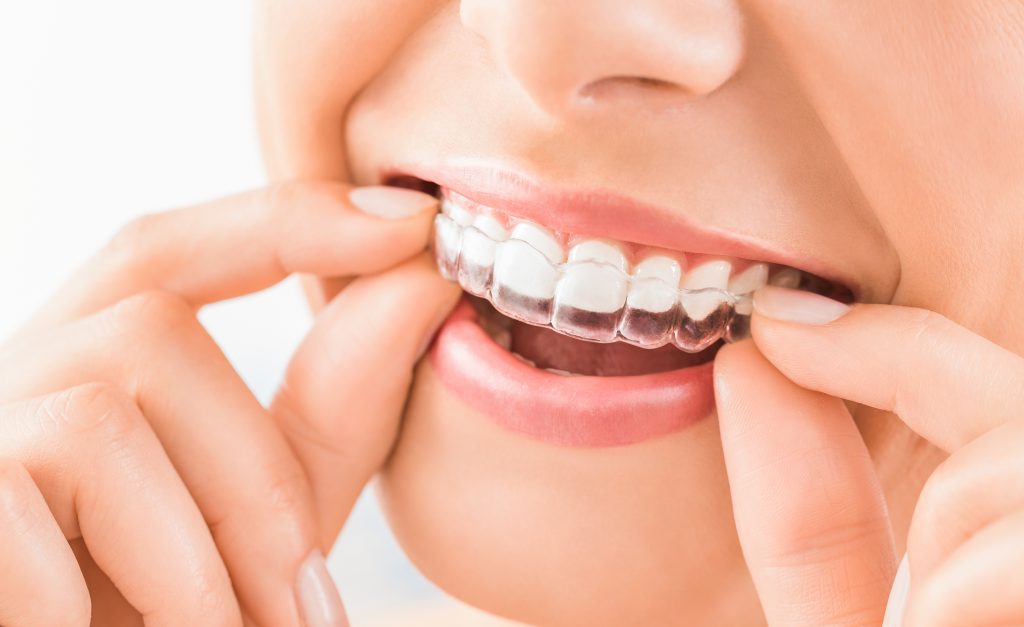What is a nightguard?
A night guard, also sometimes called a bite guard or mouth guard, is an oral appliance used to protect the teeth from sleep bruxism or teeth grinding. Bruxism is a condition which produces pain in the jaw and may compromise your ability to chew properly.
A night guard may also be prescribed to treat obstructive sleep apnea (OAS), since bruxism occurs in about 25% of OAS patients.
A night guard is usually made of clear plastic and molded to conform to your teeth in order to ensure a perfect fit.
What is sleep bruxism?
Bruxism, the medical term for grinding and clenching of teeth, is a common condition affecting children and adults. It causes the individual to clench their jaw and grind their upper and lower teeth together. This may affect individuals during waking hours, but it often becomes even more pronounced while sleeping.
If bruxism is not treated and continues to affect the person, particularly if it happens at night during sleeping hours, the condition may prevent the individual from being able to sleep properly. This is because the noise made by teeth grinding may disrupt the individual or their sleep partner, and it also may cause severe damage to the teeth and gums.
What causes sleep bruxism and who is most susceptible?
Bruxism has been linked to a variety of possible causes, including stress, anxiety, poor posture, malocclusions and dental problems, as well as obstructive sleep apnea (OSA), which occurs in many patients with intense muscle contraction in the jaw.
According to recent studies, it is estimated that an average of 8 percent of adults in the United States may be affected by sleep bruxism; while about 20 to 30 percent of children may be affected.
There are many probable causes of sleep bruxism in children. In many cases, problems with jaw alignment affecting the bite, or the way the top and bottom teeth meet, maybe the cause. In other cases, the tooth grinding behavior is suspected to occur as a response to an earache or pain in the jaw caused by teething. Emotional states such as stress and anxiety also affect the incidence of bruxism during sleep as well as during waking hours.
How does a night guard help treat bruxism?
The night guard acts as a barrier that prevents the upper and lower teeth from meeting so that you may not grind them against one another.






